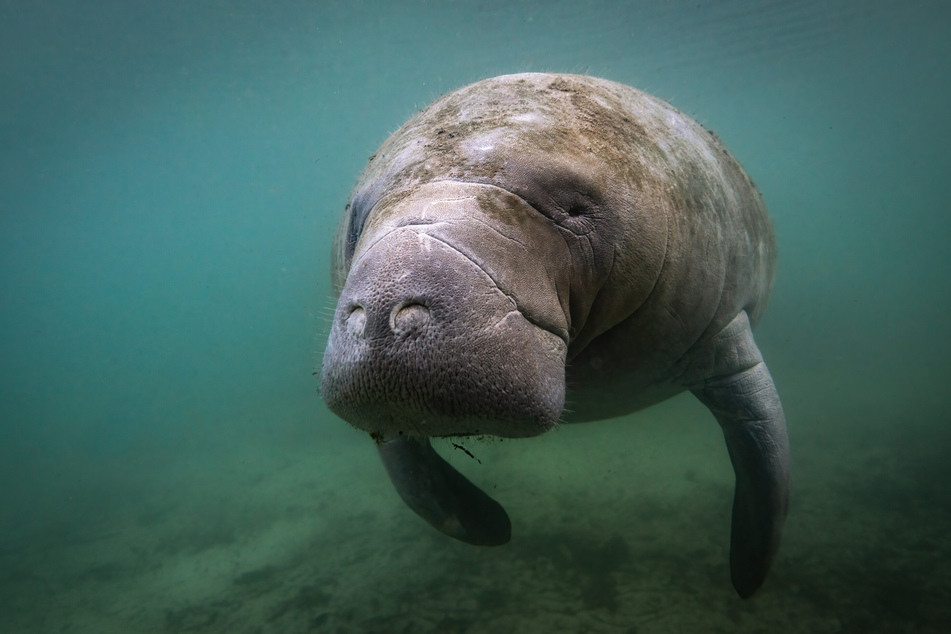Why environmental protection measures could kill manatees in Florida
Apollo Beach, Florida - Most would assume that it'd be a good thing to shut down carbon-emitting coal-fired power plants. Yet, for the manatees near Apollo Beach in Florida, it could spell their doom.

The manatees that dwell within the waters of Apollo Beach have an unusual story to tell. Normally living in the warm springs that used to dot nearby landscapes, these fascinating creatures have had to adapt in unusual ways as their life support system has floundered.
Warmer waters surround the massive nearby coal-burning power plants, fueled by huge pumps that service the machines' cooling systems. While to most, these institutions simply pollute and burn, the BBC reports that to the humble manatee, it is a source of that most desperately needed resource – warm water.
These lumbering gray lumps cannot survive in water that's below 68-70°F. This is what the power plants provide – a substitution for the warm swamps and lakes that have disappeared.
Hundreds of manatees could die from power plant closures
The warm water discharged from the power plants ensures that the Florida manatees survive through, in particular, the colder winter months. Current policy sees authorities attempting to remove this discharge within the next 30 years due to pollution.
It's pretty obvious, then, that these beautiful animals are at risk – and there's a precedent: In 1997, hundreds of manatees died after a power plant was rebuilt to meet water quality requirements.
"We need to figure out how to get the manatees to go to other places," explained Elizabeth Fleming, a conservationist and manatee expert with the non-profit organization Defenders of Wildlife.
It's not only the warm water that keeps these manatees alive

Warm water alone will not be enough to ensure the survival of these underwater giants, and obtaining food is already becoming an ever greater problem. This is a double-edged sword, as the power plants act both as the manatee's support system in winter and as a pollutant that kills the seaweed they feed upon.
As a result, an extraordinary program was launched by the Fish and Wildlife Foundation of Florida in 2021, dubbed "Let Them Eat Lettuce." It had the goal of providing around 600,000 pounds of romaine lettuce as feed for the manatees over two years. The project was a huge success and fed starving manatees in their droves – leading to it being renewed in 2023.
On top of the feeding crisis they face, a huge percentage (around 96%) of Florida manatees are believed to have scars from collisions with boats. These crashes are also thought to be responsible for almost a quarter of all manatee deaths each year.
As a result, and also to protect other regional wildlife and marine animals, a number of strictly protected zones have been established, banning shipping and fishing off many areas of Florida's coast.
Hope is not yet lost for the Florida manatees

Various measures are now being taken to try and bring the manatee population back up. As we reported in March, a variety of activists are incredibly active in their campaigning, even threatening to sue authorities if manatees are not afforded more protections under the EPA and, more specifically, via their endangered species classification.
Among other things, boaters are being asked, and in some cases required, to undertake safety precautions to reduce the risk that their watercraft will injure a manatee. In addition, efforts are being made to restore at least some of the natural springs in the area in an attempt to move the manatees back into their natural habitat slowly.
The latter strategy makes a lot of sense because it will reduce the risk of boat collisions and help lessen the impact of power plant closures. It is, however, one of the more complicated and difficult goals to achieve. In addition, scientists are working on a way to cultivate seaweed, but it is expected that this will take more than a decade to be adequately completed.
While progress might be slow, work is ongoing to improve the manatees' situation. Many scientists remain hopeful, though many wonder about whether the species can withstand the oncoming storm.
Cover photo: 123RF/collins93
